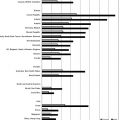
With the elucidation of von Hippel Lindau gene dysregulation, scientists have enabled clinical investigators to approach clear-cell RCC—the most common type of RCC—at the molecular level. The discovery that this tumor is driven by angiogenesis (see Li and Kaelin) has led to establishing the vascular endothelial growth factor (VEGF) and the mammalian target of rapamycin as the cornerstone of therapy for RCC (see Voss and Albiges). Overall, patients with advanced RCC now live longer and have options.
The success of these therapies in the advanced setting makes them attractive options to be tested in the adjuvant and neoadjuvant settings (see Smaldone and colleagues), and in non-clear-cell histologies (see Chowdhury and colleagues). These agents can cause “class-effect” toxicities such as hypertension, diarrhea, wound healing, cardiovascular events, metabolic derangements, and others. It is therefore essential that health care providers be familiar with the management of side effects from these novel agents (see Appleby and colleagues) to maximize therapeutic benefit.
Immunotherapy is considered an old standard in advanced RCC; nevertheless, high-dose interleukin-2 remains the only therapy with durable (albeit quite rare), complete remissions and insights into patient selection for such a toxic therapy is key (see Rosenblatt and McDermott).
RCC accounts for ∼2% of all malignant diseases and incidence rates in the US have been rising steadily for over three decades. However, the increasing incidence of RCC cannot fully be explained by increasing availability and use of novel sensitive imaging (see Krajewski and colleagues) and may indicate an increase in the prevalence of etiologic risk factors. While smoking, hypertension, and obesity are established risk factors, several other occupational and lifestyle factors may also affect the risk of RCC (see Cho and colleagues).
Surgery remains the mainstay of curative therapy for nonmetastatic RCC. Surgical techniques are evolving. We understand now more than ever that partial nephrectomy, when feasible, will lead to an equivalent long-term oncologic control to radical nephrectomy with the advantage of saving nephrons (see Russo).
Small renal masses (SRMs) are increasingly encountered in clinical practice and represent a challenging scenario with risk of overtreatment, particularly in the elderly and patients with limited life expectancy. Studies are now emerging with pathologic data suggesting that a large number of these SRMs are benign lesions or indolent cancers. Active surveillance or ablative therapies may therefore be appropriate in selected cases (see Yamaguchi and colleagues).
Surgery also plays a role in advanced RCC. In appropriately selected patients, cytoreductive nephrectomy as well as metastectomy can prolong survival. Whether this is applicable to the new era of targeted therapy remains unclear (see Karam and Wood).
While significant strides have been made in RCC biology and treatment in the last several years, many challenges will continue to face researchers and clinicians. Why do patients eventually progress; what are the mechanisms underlying VEGF-targeted therapy resistance, and is the strategy of combining “active” drugs better than sequencing them? How should we think beyond 2011? (see Cho and Atkins). Patient selection/stratification remains essential in the targeted era and biomarkers of efficacy are more than ever needed in the complicated therapeutic landscape in RCC (see Tang and colleagues).
In this issue of Hematology/Oncology Clinics of North America , I have assembled a panel of thought leaders in the field, many of whom played pivotal roles in the development of our current treatment paradigms. Together, their contributions provide a comprehensive and up-to-date review of the management of this disease, and what we can anticipate on the horizon for the treatment of RCC.
Stay updated, free articles. Join our Telegram channel

Full access? Get Clinical Tree





